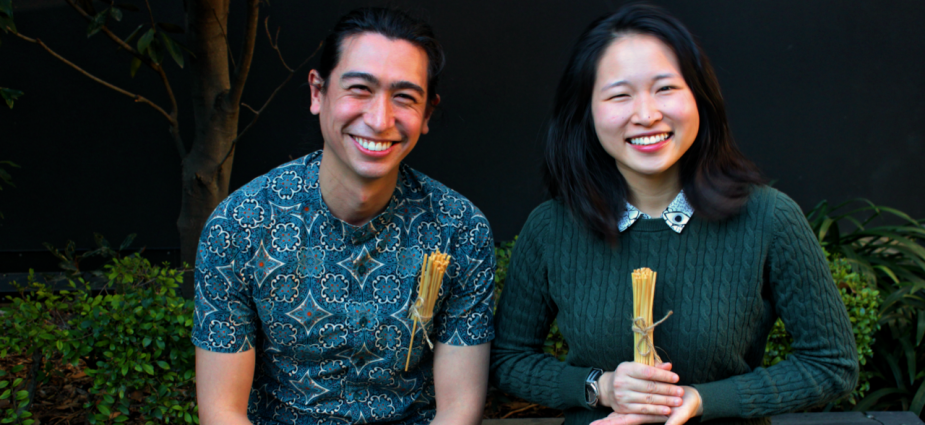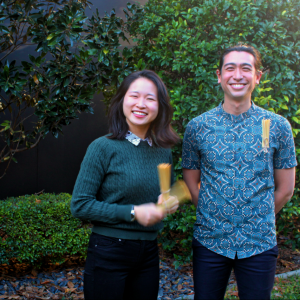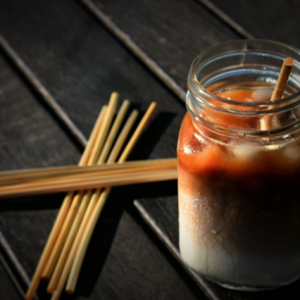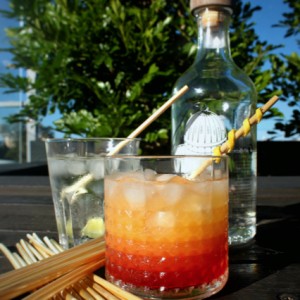In a time of advanced environmental concern, West End company Straw to Straw has emerged with a unique alternative to single use plastic straws. Co-founders Alexander Wajntal and Jenn Diong are passionate about reducing the amount of plastic in every day usage which prompted the birth of Straw to Straw’s wheat straws.
Having worked in the hospitality industry for quite some time, Wajntal and Diong are painfully aware of the 3.5 billion plastic straws used by Australians each year. They understand that while it is evident that there are many single-use plastic items contributing to pollution and environmental demise, the plastic straw is undeniably one of the most significant offenders. “We wanted to do something to tackle that problem, so we chose one product to start with — straws,” Wajntal explains.
Their straws are made from a by-product of wheat, which when hydrated assumes the flexibility of a plastic straw. Biodegradable straws are very popular at the moment, but Wajntal and Diong are particularly focused on ensuring that the entire process of creating and sourcing the straws is as eco-friendly as can be.
Wajntal explains that, “Any wastage from our product is usually burnt or used for cattle food.” Unlike paper straws, wheat straws are not sourced from trees and therefore do not contribute to deforestation issues and on top of that do not become soggy when wet, which only enhances their appeal. Tapping into his father’s childhood memories, Wajntal learned that in the 50s, kids would often use wheat straws to drink soft drinks until they were phased out by the emergence of fast food and plastics. “We are simply just taking that old idea and bringing it back to the market.”
Being a start-up company, Straw to Straw’s short-term goal is to become established in the market, however in the long term, it aspires to develop new products to tackle other plastic related issues such as takeaway packaging and coffee cup lids. While the company is optimistic about the future of eco-friendly products, it recognises that time and cooperation is imperative for phasing out plastic. Furthermore, Wajntal and Diong hope that in bringing in more products, it will lower costs and attract the support of an increasing number of food businesses in the movement towards a more sustainable hospitality industry.
To unveil the significant environmental value of its product, Straw to Straw is currently getting involved with the sustainability department of the Brisbane City Council and other associations such as Plastic Free Noosa to establish rapport and visibility and promote their eco-friendly products to the public. While countries such as America and France have decreased their plastic consumption dramatically, Wajntal and Diong believe Australia is not far behind. With a smaller population and a strong determination to reduce its environmental footprint, Straw to Straw has no doubt that Australia will catch up and become dedicated ambassadors of eco-friendly businesses. It is an exciting time for innovative entrepreneurs such as Wajntal and Diong as the Australian hospitality industry benefits from significant opportunities to preserve the earth.
Readers also enjoyed our story Visionary Collection
















